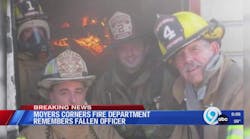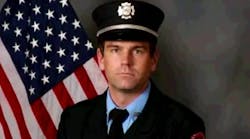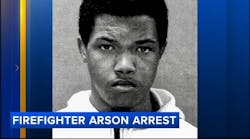As one who has studied leadership for a long time, I want you to know that I have worked very hard to accumulate a solid basis of theory for my writings. A great deal of my time has been devoted to reviewing the academic literature as it relates to the topic of leadership. I learned very quickly that there is a wealth of knowledge to be gained in this critical area of organizational development. For you see, without leaders, we are left without direction, guidance and motivation. Many of the people who write in academic journals go on for page after page, yet say nothing. That is a style I hope that I have avoided. However, they have placed an untold number of kernels of knowledge out there to pique the interest of the discerning reader.
I have specifically looked at some of the leading writers to see how they deliver their message, for I want to be sure that what I have to say is relevant to the early years of the 21st century. However, I do not want to lose contact with the precious elements that have formed the foundation for our organizations, and provided the cornerstone for the operational structures wherein we now work.
Warren Bennis has come to be one of my favorite researchers and writers. He has an excellent writing style, and always imparts decent knowledge. In a recent piece, he touched a responsive chord with me. In a discussion of leadership written for Executive Excellence, he makes a point upon which I would like to build this month’s column. He states, “The process of becoming a leader is the same as becoming an integrated human being. Character counts more than any other single quality. Character has to do with our mental/moral attitude when we feel most active and alive.” (Bennis, Executive Excellence, 1999.)
His thoughts are supported by the writings of Dr. William Cohen, a retired major general in the U.S. Air Force Reserve. In his book The New Art of Leadership, he covers important principles of leadership in combat scenarios, which he calls “the ‘worst-case’ condition of high risk.” (Cohen, Executive Excellence, 1999.) Cohen lists integrity as his first law of leadership and urges us to “maintain integrity by doing the right thing … (for) without basic trust between leaders and followers, the leader will be ineffective.” (Cohen, ibid.)
Each time I teach a leadership course, I begin with some version of the following: “Think of the best leader for whom you ever worked. What is it that made that person great to your way of thinking?” Without fail, some form of the word character comes into the discussion very early on. Other words that follow are:
- Supportive
- Trusting
- Nurturing
- Reliable
It has been my experience that there is a critical element that lies at the heart of a good leader. It seems to be like a force that acts in an almost magnetic fashion to draw people towards them. They seem to have what I call a moral compass to guide them as they travel the dusty, bumpy road of leadership. Let me share a few thoughts on what I believe encompass the concept of this moral compass.
Over the course of my lifetime, I have encountered a number of leaders. Some were truly great, some were really, really bad. Occupying the middle ground were nice people who had a habit of doing the right thing at the right time. Cohen tells us that this attribute lies at the heart of being a good leader. He suggests that telling the truth is a great place to start, but goes on to say that “integrity is more than telling the truth – it means doing the right thing.”
Let me now extract a few key points from my lesson plan on finding your moral compass:
Integrity, trust and dependability all fall into the same basket. If leaders act in a manner that merits trust, the troops will respond and trust them. If they are consistent in their actions and support for their people, that trust will strengthen and grow. It is just that simple. This is the interaction that creates loyalty. People will demonstrate loyalty to those whose actions merit it.
The opposite is equally true. As a leader, you can never be perceived as the sort of person who lets the rug to be pulled from under your people. In some cases, you may even have to act as a shield between your troops and the powers that be. While that may seem to fly in the face of what a supervisor should do for the organization, I suggest that unless people are happy in their jobs, performance will suffer. Good leaders know this and they limit the amount of trouble that flows downhill toward their people. This can be hard on the leaders, but the results can be worthwhile.
There is another attribute to which you can aspire, but that cannot be taught to you. That attribute is courage. You can study famous heroes in history until the last day of your life, but not understand what it is to take a courageous action. Let me remind you that the need for courage is not limited to the fireground, although that is the most public venue for this important attribute.
Public heroism can be rewarding, and it is extremely important in the history of an organization. However, it is the day-in, day-out type of quiet heroism that can be the most satisfying. Fighting for a cause you believe in can be most satisfying. Fighting for this same cause in the face of organizational obstructions and discouragement can be quite a different matter.
Faith, pride, tact and good judgment are attributes that you must develop yourself. Each of us must come to believe in something other than ourselves. Once you have come to a personal knowledge of what you believe, live that belief and be consistent in your application of its tenets.
Pride is also a difficult phenomenon to engender. Pride can be a force for good as well as for evil. Remember the words of the Bible: “Pride goeth before destruction, and a haughty spirit before a fall.” Very simply, pride can get in the way of good sense.
On the other hand, pride in something that is good and worthwhile can also create a level of loyalty beyond belief. This is the good pride, the strong pride that makes failure in front of your peers an unacceptable option. A properly generated aura of unit pride lies at the center of some of our greatest organizations.
Trust, character, knowledge and the others are just the starting point. A critical element within your moral compass will come from the degree to which you demonstrate persistence in pursuit of your organization’s vision, mission, goals and objectives. Think about the advice regarding perseverance that you have heard since you were a small child. Thomas Palmer stated it best in 1840 when he wrote, “ ’Tis a lesson you should heed, try, try again, if at first you don’t succeed try, try again.” There is a great deal to be said for people who can keep their eyes on the prize. It takes a great deal of perseverance to push on toward that prize in the face of the many obstacles placed in their path by the organization, friends, family and coworkers.
I have met some really smart people who never did fully use their intelligence and education. They simply thought people should be impressed by the strength of their credentials, recognize their innate brilliance and bow to their wisdom. It does not work that way, gang. You have to earn your way in this world, and I want to assure you that it is rare to experience success during your first attempt. You must set your personal goals and commit your life to achieving them.
Aim high, because there is always going to be a bit of a falloff as you move down life’s road. But keep trying, my friends. Please keep trying.
Harry R. Carter, Ph.D., MIFireE, is a Firehouse® contributing editor. A municipal fire protection consultant based in Adelphia, NJ, he is a former president of the International Society of Fire Service Instructors (ISFSI). Dr. Carter is an associate professor at Mercer County Community College and a past chief and active life member of the Adelphia Fire Company. A fire commissioner for Howell Township District 2, he retired from the Newark, NJ, Fire Department in 1999 as a battalion commander. He also served as chief of training and commander of the Hazardous Materials Response Team. Dr. Carter is a Member of the Institution of Fire Engineers of Great Britain (MIFireE). You can contact him through his website at [email protected].




